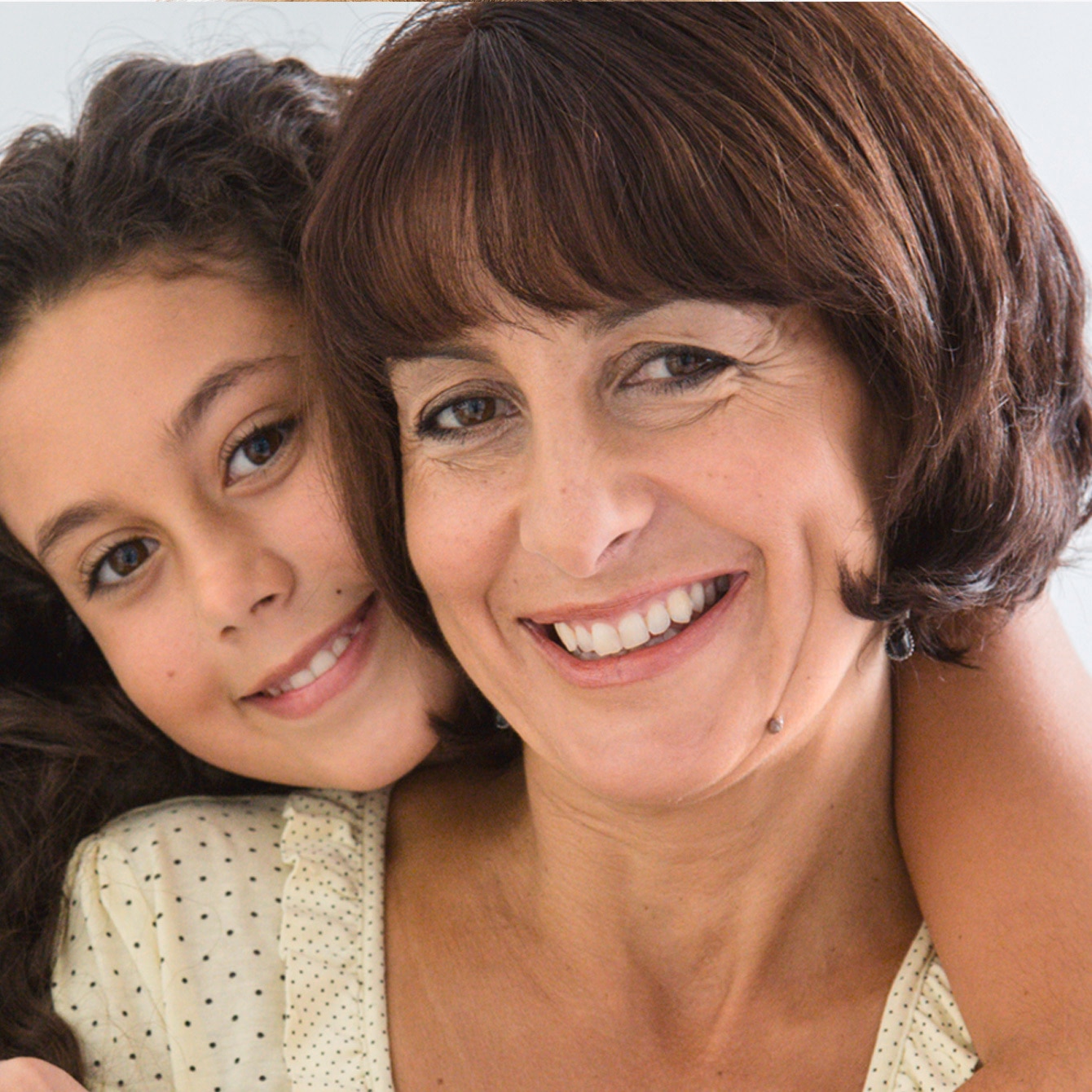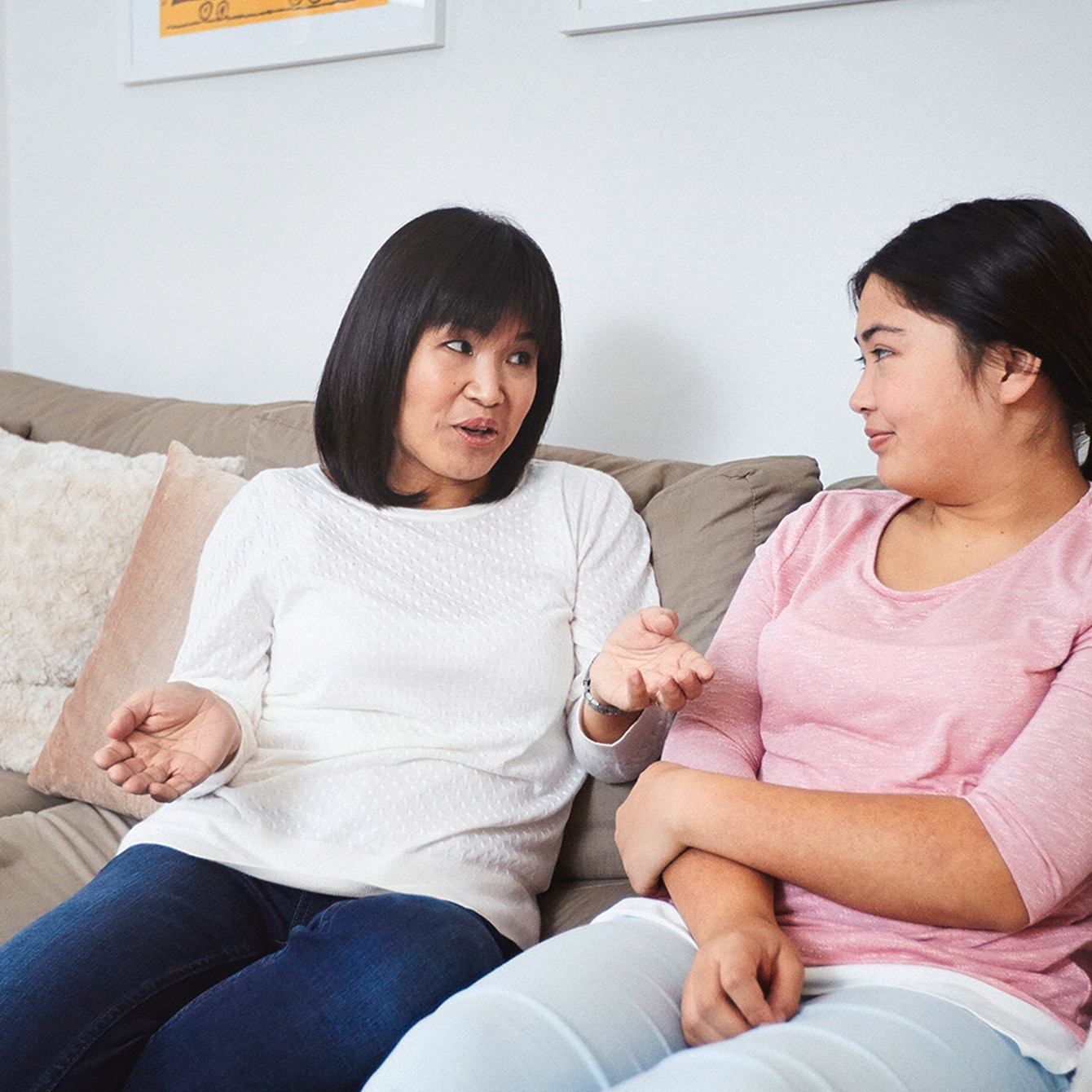Your child is growing up fast, and no doubt, has different role models and influences to the ones you had growing up. Use our action checklist to talk to them about the differences, and bridge the generation gap.
Young people face intense pressure as they embark on the path to adulthood. It seems they're encouraged to wear makeup, dress in the latest fashions and even appear ‘sexy’ at an increasingly younger age. Everyone's in a hurry to grow up, and experience is currency. Keeping up with it all can feel pretty daunting – for your child and for you.
Changing times change our relationships
Mum Emma initially struggled to understand daughter Olivia's attitude. She found Olivia cheekier than she had ever been with her own mother.
“I found myself getting annoyed that Olivia didn’t have the same respect I had for my mum when I was growing up,” she explains. “But, over time, I realised that her cheekiness showed a closeness that I didn’t have with Mum. Olivia feels more relaxed with me so she can express herself differently – and she lives in a different world to the one I grew up in. Once I accepted that, it felt like we started communicating so much better.”
Take time to understand your child’s world
Body image campaigner and expert Jess Weiner, says this is a common feeling for mums. “Rather than fighting the world that your daughter lives in, try to embrace and understand it. Watch her favourite TV shows or browse some of her favourite magazines together and find out why she likes them. At the same time, make sure you share your own world with her, your likes and dislikes. You are laying the foundations of your adult relationship together. Understanding, trusting and supporting each other requires both of you to listen and share.”
Think about your mother daughter relationship
It can help to cast your mind back to when you were your child’s age – that bewildering period when your body was a stranger to you, you'd started a new school, and your first love had broken your heart – an endless, heady cocktail of confusion, elation, frustration and amazement.
What were your relationships with significant women in your life like during that time? Did your mum, aunt or grandma offer the support you needed? Are there things you’d like to do differently now it’s your turn to offer that support?
Body image and the media
Consuming media, and having a social life online, is unlikely to feel optional for a young person today – it's more an unquestioned reality. They’re not likely to be daunted by it, but might not be aware of the pressure it's placing on them. “The media is desensitising a whole generation to the meaning of privacy – everything is recorded, photographed, uploaded, shared and commented on,” explains Weiner.
Scantily clad celebrities with dysfunctional relationships – which they discuss in front of millions of strangers on Twitter – are the new role models. The uncomfortable in our skin: the body-image report, found that young girls today are bombarded with up to 5,000 digitally enhanced images a week that suggest how they should look. Consider the impact of this on their body image and self-esteem.
Build a bridge of communication
To help your child cope, first accept and try to understand the different influences and pressures in their life compared to your own generation, then open communication. Simply starting a conversation with them will show you’re interested.
“The more open your attitude, and the more interest you take in her world, the more likely she is to open up to you,” says Weiner. “She needs unconditional support from you, as you’re the most important and most constant role model in her life.”
To protect privacy we've changed the names of people whose stories we tell on these pages, but the stories are genuine.
Want to get closer to your child? Use our checklist for ideas.


